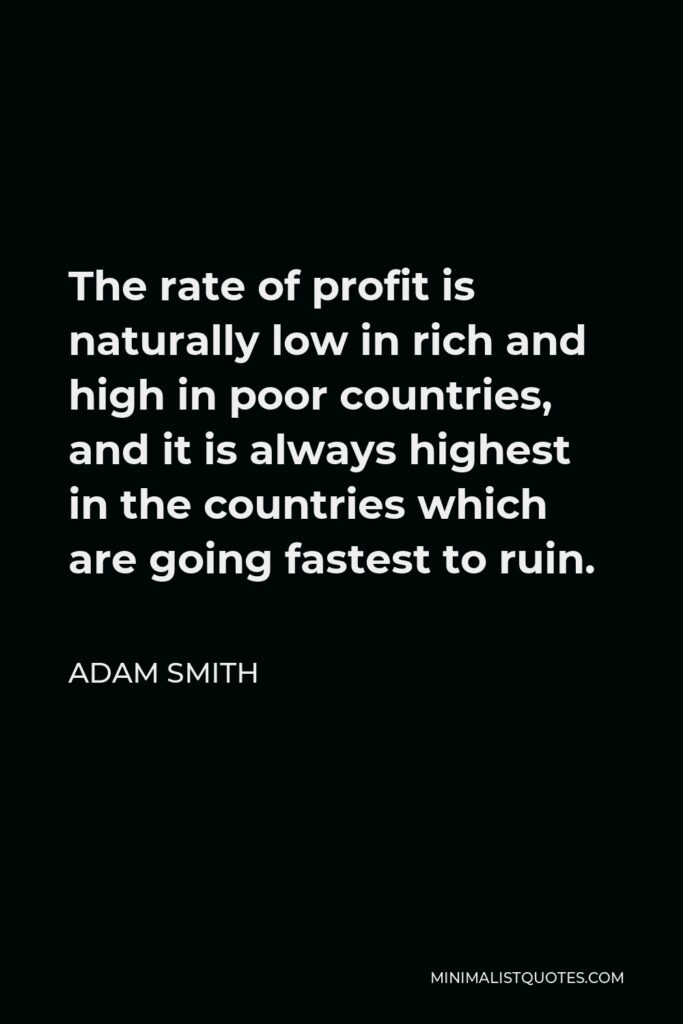A nation is not made wealthy by the childish accumulation of shiny metals, but it enriched by the economic prosperity of it’s people.
ADAM SMITHNothing is more graceful than habitual cheerfulness.
More Adam Smith Quotes
-







-







The great secret of education is to direct vanity to proper objects.
ADAM SMITH -







The problem with fiat money is that it rewards the minority that can handle money, but fools the generation that has worked and saved money.
ADAM SMITH -







Nothing but the most exemplary morals can give dignity to a man of small fortune.
ADAM SMITH -







Corn is a necessary, silver is only a superfluity.
ADAM SMITH -







Fear is in almost all cases a wretched instrument of government, and ought in particular never to be employed against any order of men who have the smallest pretensions to independency.
ADAM SMITH -







The rate of profit is naturally low in rich and high in poor countries, and it is always highest in the countries which are going fastest to ruin.
ADAM SMITH -







Nothing is more graceful than habitual cheerfulness.
ADAM SMITH -







A gardener who cultivates his own garden with his own hands, unites in his own person the three different characters, of landlord, farmer, and labourer. His produce, therefore, should pay him the rent of the first, the profit of the second, and the wages of the third.
ADAM SMITH -







The game women play is men.
ADAM SMITH -







Consumption is the sole end and purpose of all production; and the interest of the producer ought to be attended to, only so far as it may be necessary for promoting that of the consumer.
ADAM SMITH -







Beneficence is always free, it cannot be extorted by force.
ADAM SMITH -







There is no art which government sooner learns of another than that of draining money from the pockets of the people.
ADAM SMITH -







Every tax ought to be so contrived as both to take out and to keep out of the pockets of the people as little as possible, over and above what it brings into the public treasury of the State.
ADAM SMITH -







No society can surely be flourishing and happy, of which the far greater part of the members are poor and miserable.
ADAM SMITH -







I have no faith in political arithmetic.
ADAM SMITH








